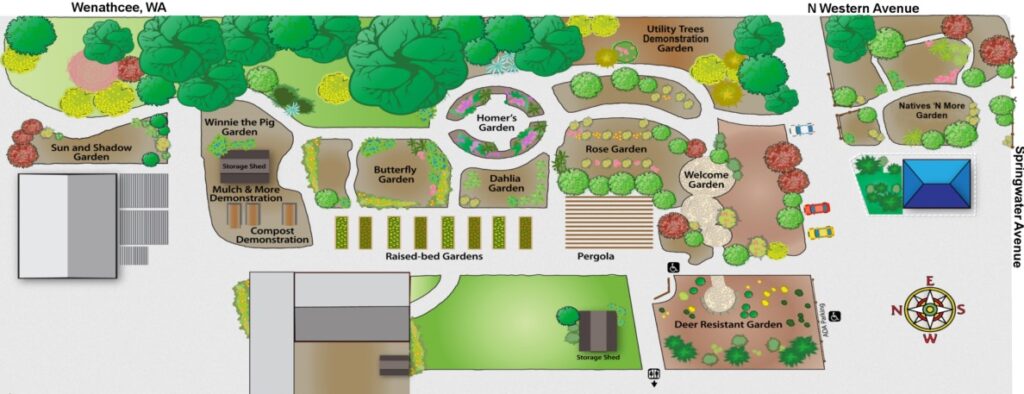Life with COVID-19: Master Gardeners are adapting to serve evolving community needs
This is the time of year when the WSU Chelan-Douglas Master Gardener volunteers are normally busier than bees getting ready for their annual plant sale, tending their gardens on Western Avenue and on the Apple Capital Recreational Loop Trail, and engaging in face-to-face exchanges with gardeners who have questions.

But, as we all know, this is anything but a normal year. I spoke with Jennifer Cawdery, the Master Gardener Program Coordinator, about how the group is adapting in this time of physical distancing. The group is adapting and continuing to serve by doing things differently.
She acknowledged that the rules are very hard on the volunteers. “It’s a bit like taking grandpa’s (car) keys,” she said. “Many of them are retired and many are widowed, so isolation is not helpful at all,” Cawdery added. Serving the program is their primary social outlet.
Cawdery, who previously worked at Wenatchee Valley College in the TRIO program that assists low-income, first generation college students and those with disabilities, took over the program in January.
Dealing with the COVID-19 issue wasn’t in the job description, she said with a laugh. Because the group’s membership is heavily skewed to retirees and therefore in the vulnerable category to the disease, a week prior to the state shutdown, WSU directed them to cease all gathers and in-person consultations. That’s a big blow for a group that is all about social connection, building relationships and helping people with their plant challenges.
The group has about 110 volunteers and through brainstorming they’ve been making the shift to the digital world. They are still available to answer gardening questions (via email), said Cawdery.
Their training program for volunteers is continuing but doing the coursework online rather than in person. Volunteers are participating in daily Zoom sessions to stay connected and engage in continuing education opportunities.
A big emphasis right now is helping people grow their own food, which given the economic shutdown is a huge opportunity for all of us. Like the Victory Gardens in World War II, producing food at home seems like a really savvy way to stay busy and productive.
Jennifer Marquis, the statewide coordinator for WSU’s Master Gardener program, was able to lobby Gov. Jay Inslee to add their food production effort to the list of essential services, Cawdery said.
A dahlia bed at the Community Education Garden has been converted to grow vegetables in support of that effort. Volunteers will be using that bed to create educational resources for home growers and will donate produce for local distribution. They will also be growing an extra row of food in their home gardens and donate excess food as well as developing an online plant and insect diagnosis effort to assist home growers.
The group is also helping the community in other ways in lieu of maintaining the demonstration gardens. Volunteers have been supporting other efforts in the community, such as making masks and gowns and supporting Hospitality House and a host of other nonprofits.
Meanwhile, several master gardeners are working on getting their plant clinic into a virtual format, so that gardeners with questions can fill out forms, upload pictures and videos and have an online chat with a clinician.
We are all learning to adapt to a changed reality and the Master Gardeners are taking on this challenge with determination. We are so fortunate to have this program in North Central Washington.
For more information about the Master Gardener program, you can email Cawdery at Jennifer.cawdery@wsu.edu or check out their website at https://extension.wsu.edu/chelan-douglas/gardening/mg/


